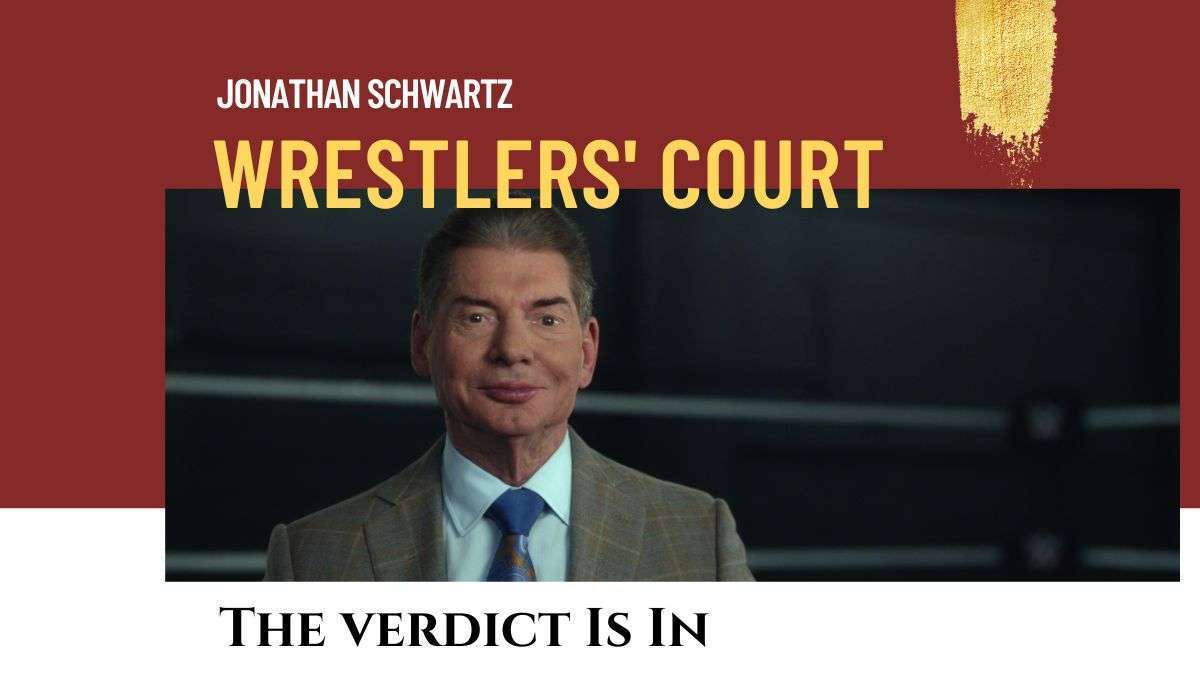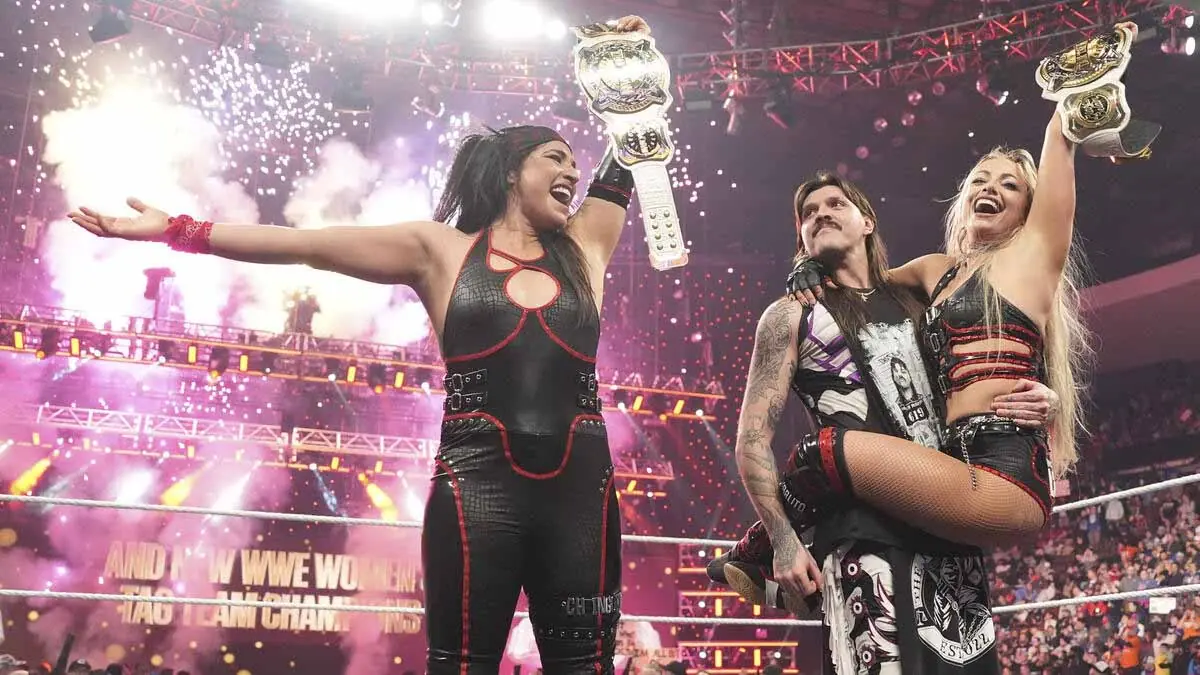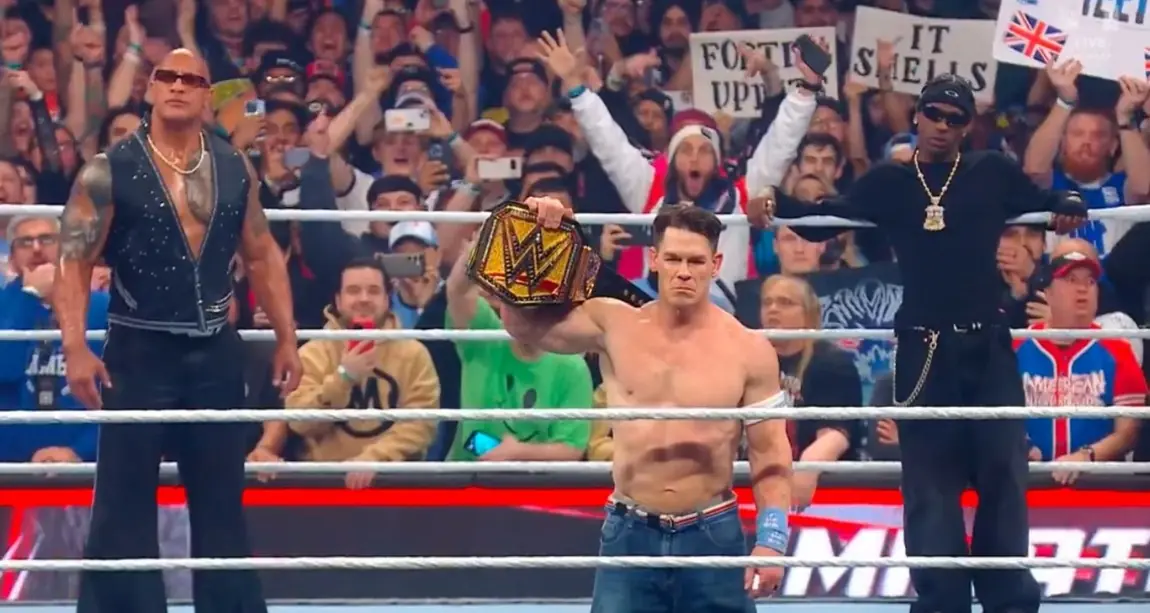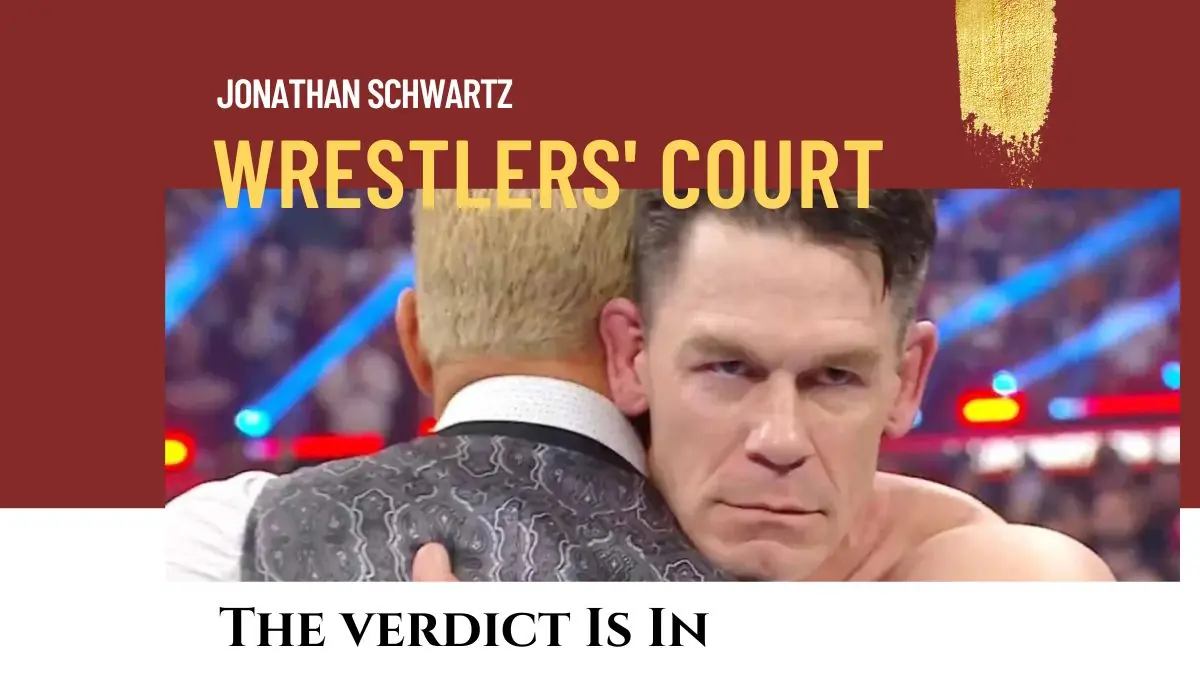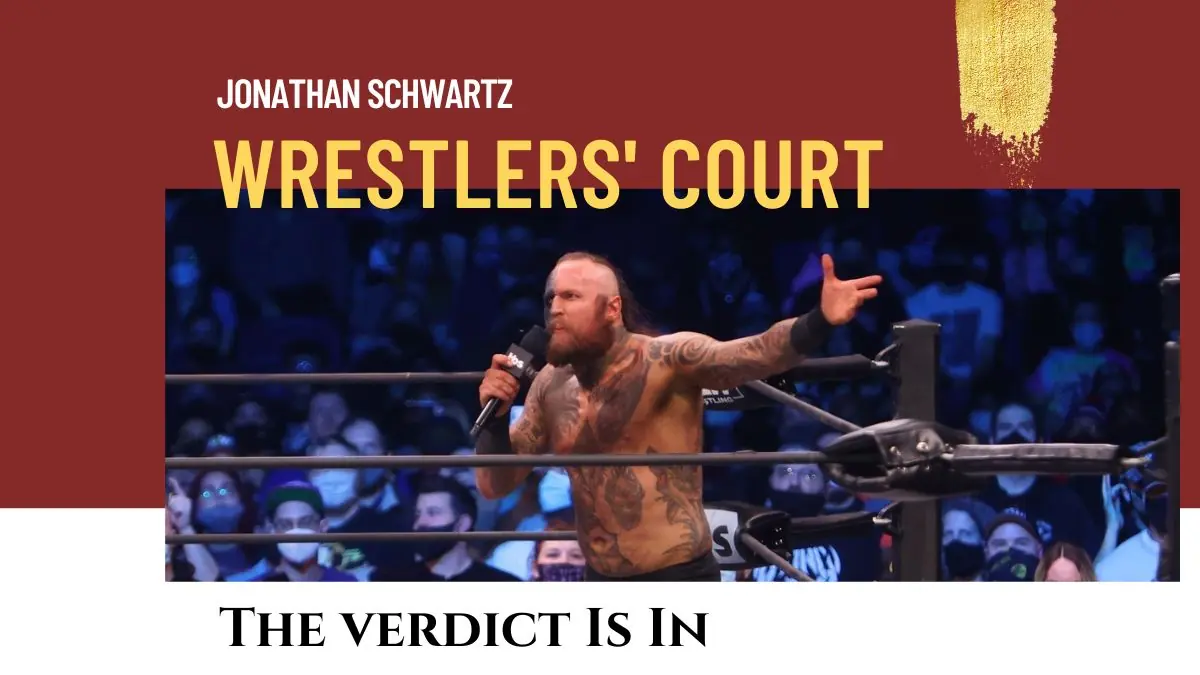I recently had the misfortune of watching Netflix’s Mr. McMahon documentary series.
Truth be told, I wasn’t planning on watching it. I’ve seen and read and written enough about Vince McMahon to be sick of him.

I acknowledge that McMahon transformed the pro wrestling business for better and for worse. I am as aware of his history as the next wrestling obsessive. His shady business practices and sordid personal life aren’t really my business, although they have become a cottage industry for reporters.
In fact, I think the New York Post‘s Phil Mushnick said everything that needed to be said about Vince McMahon in his first few seconds on screen: “He’s a dirtbag.”
That said, I was drawn into the series not by its subject but by its audience. In the week or two that the documentary has been out, my social media accounts have been deluged with the thoughts of a few people who know McMahon, and thousands more who don’t. So maybe he’s worth a bit more spilled ink.
Herewith, a few thoughts, best followed by a cleansing shower.

Producer Matt Maxson is doing media rounds to support his project. He is clear about his frustrations dealing with McMahon.
Vince is a difficult and often hostile subject, especially when he faces mainstream media scrutiny. Just ask Bob Costas. McMahon is quick to deflect personal and professional responsibility. When fact-checked he bloviates, not unlike a few celebrity WWE Hall of Famers (the late Pete Rose and the current Donald Trump spring to mind).
Nothing new here on that front. Maxson is quick to call McMahon an “unreliable narrator”.
It may be the most truthful thing that’s been said about the man.
McMahon admits his serial dishonesty throughout the documentary. He also repeatedly states that he sees the world as an endless battle, one where he does not “fight fair.”
Adversary-turned-advisor Paul Heyman goes so far as to suggest that McMahon’s only honest, faithful relationship is with WWE itself. Heyman said that before the most recent misconduct allegations against McMahon came to light. If McMahon did appropriate company funds to silence former mistresses, I think even that loyalty comes into question.
McMahon states that as the head of WWE he often says things that he does not believe, or that he knows to be untrue.
I wish this line were unpacked further. Part of being a professional is setting aside personal preferences to meet the demands of one’s job. Public servants follow the direction of the government of the day. They create or implement laws and policies as instructed, whether they personally agree or not. Lawyers give advice to a client but take instructions regardless of whether they think the client is wrong — unless the client wants the lawyer to do something illegal or unethical. I suspect McMahon has tested those obligations with his counsel more than once.

There is a difference between one’s obligation to put one’s business in the most favorable light and outright deception, especially when it comes to misleading shareholders, regulators and the justice system. We shall see how the latter pans out for McMahon – who faces multiple investigations related to alleged improper business conduct, sexual assault and human trafficking.
I think McMahon’s deceptions run deeper than the occasionally faulty memory he displays when interviewed. They were integral to WWE’s growth and went largely unchecked until Vince became accountable to shareholders and regulators as a public company.
WWE started as a private company and grew in part because McMahon acknowledged that pro wrestling is a show. This allowed him to skirt regulation by various state athletic commissions. In fairness, some of these commissions were and are their own form of grift, pocketing fees without providing a service of value. Some commissioners did take their jobs seriously, including the part where they looked after performers’ health. McMahon sought freedom from regulation and lower operating costs. He also bypassed health and safety requirements, which helped him push his roster to the kind of schedule that promotes injury and addiction.

McMahon outright rejects the notion that he was responsible for his performers’ health. He points out that many talents joined WWE with injury or addiction issues – though if this was known at the time I question the decision to hire them, if only from a risk management perspective.
Similarly, McMahon avoided a host of labor laws by positioning his workers as independent contractors rather than employees.
According to the United States’ Internal Revenue Service, a business owner must determine whether the people who provide services to the business fall into one category or the other. To make this determination, all information that provides evidence of the degree of control that the business exerts over the person, and the independence of that person must be considered. The IRS states that the keys are to look at the entire relationship and consider the extent of the right to direct and control the worker and to document each of the factors used in coming up with the determination. The significance of the issue is that a business owner (like WWE) must withhold and deposit income taxes, social security taxes and Medicare taxes on wages paid to an employee. No such obligations attach to independent contractors.
This issue has been litigated, although I have never quite understood just how the courts came to accept WWE’s arguments. The biggest point seemed to have been that wrestlers signed contracts that acknowledged their status as independent contractors, regardless of the terms of those contracts.
WWE’s version of independent contracting is a transparent attempt to avoid traditional employment law requirements. Their control over performers’ intellectual property, working dates and availability to work for other employers when not actively on WWE business suggest a full employment relationship. For decades following the closure of WCW, WWE was the only American wrestling company of scale. This gave talent even less room to negotiate their independent contractor agreements and WWE greater control over their comings and goings.
McMahon responded to the documentary by claiming he was misrepresented. He inhabits the role of a heel, begging off when caught cheating: “This doc falls short and takes the predictable path of conflating the ‘Mr. McMahon’ character with my true self, Vince. The title and promos alone make that evident.”
The problem is that Vince is on tape saying what he said. He can deny his remarks, but this invites a classic cross-examiner’s response: “Were you lying then or are you lying now?”
I’m not so sure McMahon knows.
Episode Five of the series tries to parse the difference between “Mr. McMahon” the TV character and “Vince McMahon”, the husband, father and entertainment executive. It does a surprisingly poor job.

Vince himself insists that there is a significant difference between his on-screen and off-screen personalities, although he’s hard-pressed to explain it. From one to the next, talking heads like son-in-law Paul Levesque, former talents like Shawn Michaels and Hulk Hogan, media commentators like Dave Meltzer and the aforementioned Phil Muschnick, lieutenants like Paul Heyman and Bruce Prichard, and McMahon’s own children whittle away at the idea that “Vince” is a separate entity. The people who know him best see barely any difference between the man and the monster he plays. That’s scary.
When pressed to defend his unsavory actions, Vince retreats to the idea that he is a businessman, and this is how business is done. It seems to be a pervasive mentality in wrestling – even the worst behavior can be excused if it puts behinds in seats. Jilted former champions like Wendi Richter and Bret Hart (both of whom were infamously stripped of their titles during live shows per McMahon’s direction) arrive at the same conclusion. McMahon rips up contracts signed in good faith, raids promotions of talent and undercuts their television deals, and treats WWE as his personal playground, then turns around and says he had to act immorally because business demands it.
I call BS. Business is amoral. It exists solely to generate profit. If a business doesn’t grow, it dies. That’s all fine, but a business is also bound by certain rules: tax laws, corporate governance, labor, and, on occasion, general decency.
As WWE head, McMahon trafficked in personal relationships with his talent. Plenty of wrestlers share a common story: Vince, who came from a broken home himself, treated the roster members he liked as family until they no longer fit into his plans and were summarily future endeavored.

The documentary makes much of Vince’s close, personal friendship with Hulk Hogan, and the betrayal Vince allegedly felt when Hulkamania ran its course and Hogan found a better deal with WCW. McMahon found a new champion in Hart (whom Vince derides throughout the documentary). Hart’s willingness to forgive McMahon even provisionally is striking given the string of personal losses Hart sustained after Vince reneged on his contract. Maybe it shouldn’t be surprising; Bret only joined WWE as part of WWE’s acquisition of Stampede Wrestling, owned by Bret’s father. McMahon defaulted on that deal, too.
Internet commenters hold McMahon up as a business genius. I fundamentally disagree. Vince’s greatest insights lay in the direction mass media was going to take. He was ahead of the curve when it came to closed-circuit TV, syndication, pay-per-view, and streaming services.
McMahon was also uniquely alert to the importance of intellectual property in building his empire. WWE expanded by raiding territories’ rosters for their hottest acts, then selling those wrestlers back to local audiences as part of a bigger travelling show. Since promoters rarely owned talents’ gimmicks, WWE was free to cherry pick what worked. This was a worse bargain for fans; wrestlers who would otherwise make frequent house show loops within a territory might show up in syndicated squash matches or on Saturday Night’s Main Event, but touring companies came around less frequently. If you lived in a smaller town within a territory, you might be even less likely to see your hometown heroes, since the biggest stars were reserved for the biggest markets.
Vince became more aggressive about protecting his intellectual property as time went on, giving wrestlers new names or personas that could only be used in WWE (although there are plenty of exceptions to this rule). Eventually all but the most willfully independent wrestlers/promoters/bookers joined the “winning” team – though these arrangements rarely worked out long-term. Established stars like Harley Race and Dusty Rhodes received new gimmicks that McMahon owned, before a big audience.
But from a creative standpoint, meh. Many innovations credited to WWE came from the promotions they killed. The talent that fueled US wrestling’s various booms originated elsewhere, and the hottest gimmicks and storylines were copied from others.

As profitable as WWE has become, Vince was a lousy businessman in matters of governance. His decisions were arbitrary and capricious. He allegedly participated in despicable coverups where talent broke laws (like Jimmy Snuka) or were victimized (like Ashley Massaro), with deadly real-life consequences. McMahon remains unaccountable for the tragedies involving Owen Hart and Chris Benoit and Brian Pillman and Eddie Guerrero and hundreds of other wrestlers left injured or destitute while the WWE machine chugs on.
McMahon was not directly responsible for their deaths (or the deaths they caused, in Benoit’s case), but he did create an environment that made it nearly impossible for people to get the help they needed, or to be able to stand up to unreasonable demands. The documentary details Vince’s union busting early on. If McMahon weren’t such a cad, Hulk Hogan would have been the show’s lead heel.
Perhaps the most disturbing aspect of this documentary is the sheer number of fans, including many within the business, who crawl out of their basements to defend McMahon, regardless of the wrongs he seeks to defend.
Frequent podcast co-host Evan Ginzburg derides these folks, paraphrasing them as such: “WWE is my religion, and Vince is my God.”
I fear that he may have a point.
TOP PHOTO: Vince McMahon in a still from the Mr. McMahon Netflix documentary.
RELATED LINKS
- Sep. 25, 2024: Netflix’s ‘Mr. McMahon’ doesn’t live up to the hype
- Sep. 24, 2024: Report: McMahon tried to buy documentary
- Sep. 23, 2024: Vince McMahon comments on upcoming Netflix documentary
- Aug. 29, 2024: Vince McMahon documentary to debut in September
- McMahon family archive
- Previous Wrestlers’ Court columns by Jonathan Schwartz
